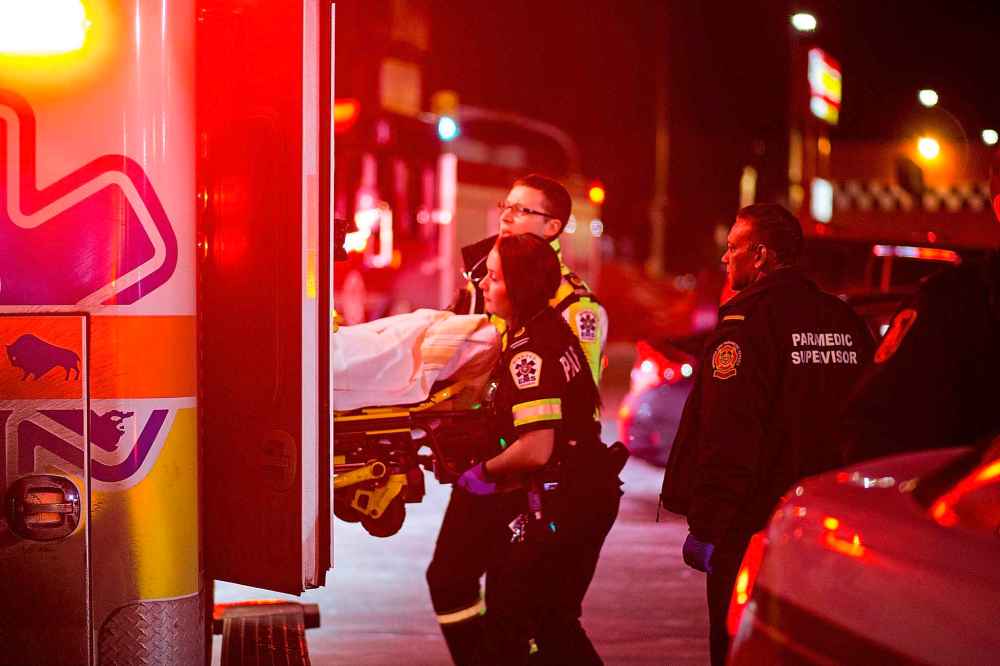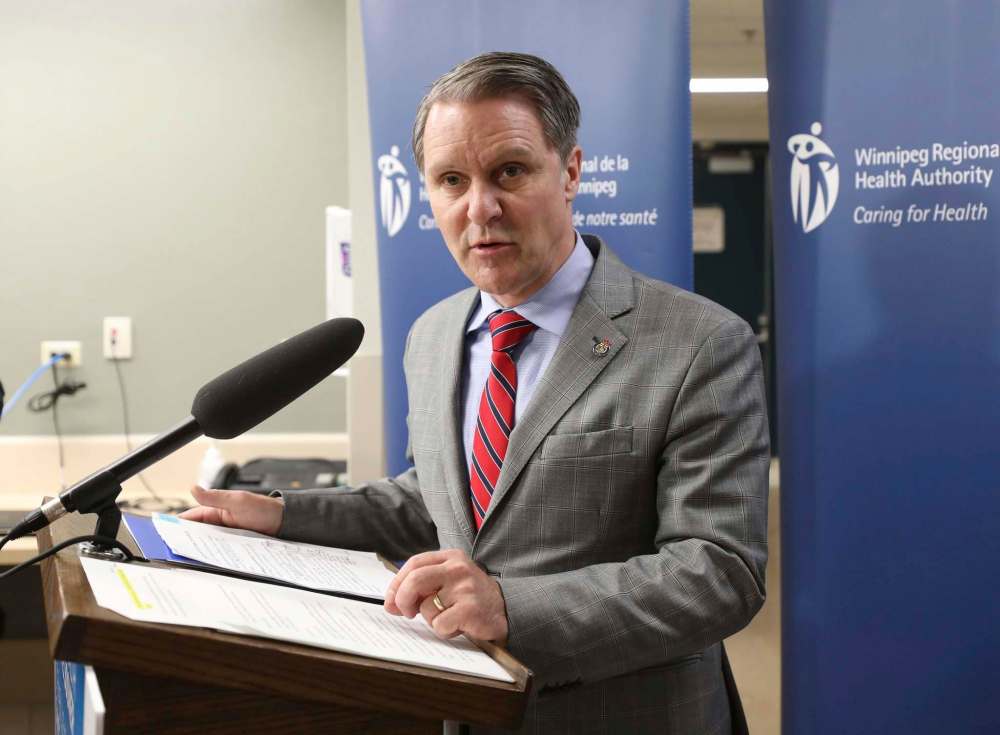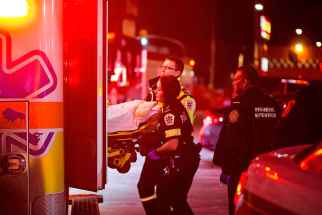Parsing words won’t solve meth problem
Read this article for free:
or
Already have an account? Log in here »
To continue reading, please subscribe:
Monthly Digital Subscription
$0 for the first 4 weeks*
- Enjoy unlimited reading on winnipegfreepress.com
- Read the E-Edition, our digital replica newspaper
- Access News Break, our award-winning app
- Play interactive puzzles
*No charge for 4 weeks then price increases to the regular rate of $19.00 plus GST every four weeks. Offer available to new and qualified returning subscribers only. Cancel any time.
Monthly Digital Subscription
$4.75/week*
- Enjoy unlimited reading on winnipegfreepress.com
- Read the E-Edition, our digital replica newspaper
- Access News Break, our award-winning app
- Play interactive puzzles
*Billed as $19 plus GST every four weeks. Cancel any time.
To continue reading, please subscribe:
Add Free Press access to your Brandon Sun subscription for only an additional
$1 for the first 4 weeks*
*Your next subscription payment will increase by $1.00 and you will be charged $16.99 plus GST for four weeks. After four weeks, your payment will increase to $23.99 plus GST every four weeks.
Read unlimited articles for free today:
or
Already have an account? Log in here »
Hey there, time traveller!
This article was published 21/12/2018 (2550 days ago), so information in it may no longer be current.
“Whistling past the graveyard” is an overused term, but it can be used accurately to describe the posture of the provincial and federal governments in the face of a growing crisis over methamphetamine.
That meth represents a public health and security crisis should not be up for debate. For evidence, the premier need look no further than Ice Storm, the investigative series on the meth crisis published this past week in the Free Press.
The increasing strain on the health care, social service and justice systems is evidence enough that we are a city and a province under siege from cheap, easily smuggled and transported and devastatingly addictive meth. From the number of addicts showing up at hospital emergency departments, to the numbers of arrests, prosecutions and demands for treatment, meth is a crisis that is measured in increases of hundreds, even thousands of per cent.

Remarkably, however, Premier Brian Pallister and Health Minister Cameron Friesen are hesitant to call it a crisis.
In a year-end interview with the Free Press, Mr. Pallister cautioned those who demand more government resources to help meth addicts by noting that “there are a lot of other people in the province that have other priorities… that may not involve meth.”
Mr. Pallister also suggested that the term “crisis” is being overused, noting that prior to concerns about meth, the term was attached to opioids: “Now they don’t call fentanyl a crisis, they call something else a crisis.”
The premier’s measured concern, and his seeming aversion to uttering the term “crisis,” should concern all Manitobans, whether they are directly touched by this virulent drug or not.
The costs of providing front-line services to combat the consequences of meth addiction are beyond the capacity of any government to control. Every time a meth addict wanders into an emergency room, requires in-patient admission to control violent psychosis, is arrested breaking into a home to feed their habits, is convicted and incarcerated or — in the final chapter of many meth addicts’ experience — dies a horrible death, all Manitobans pay.
The premier and his ministers give the impression that they do not fully grasp — or perhaps, for ideological reasons, refuse to acknowledge — the gravity of what’s going on. Mr. Pallister and Mr. Friesen have both suggested the legalization of cannabis has triggered the rise in meth use.
“The black market is not without creativity, not without innovation,” Mr. Friesen offered earlier this month. “They will look for new markets if we blockade conventional markets. Cannabis was a conventional market for the black market.”

Organized crime began shifting its focus away from the cannabis industry years ago because it is difficult to grow, transport and sell. Meth, on the other hand, is easy and cheap to make, very easy to smuggle and affordable for addicts. It is also so addictive that it is much more likely to create a dependency among its users, which drives repeat business.
The Pallister government has certainly taken some action to address meth. It has opened clinics to help addicts of all kinds manage their affliction. It has, along with Ottawa, found some additional money to bolster treatment. And it has formed a task force along with the city and federal government to discuss additional solutions.
But it is not enough. Not nearly enough.
Meth is a crisis. Suggesting such terminology is more about hyperbole than human suffering borders on irresponsible. It’s time for the Pallister government to show Manitobans it can mount a serious response for one of the most critical problems this province has faced.










